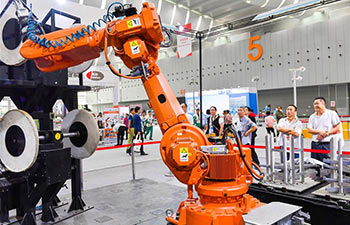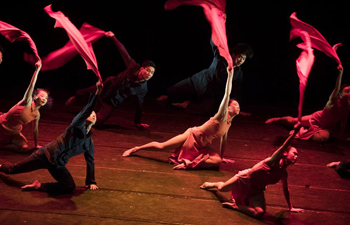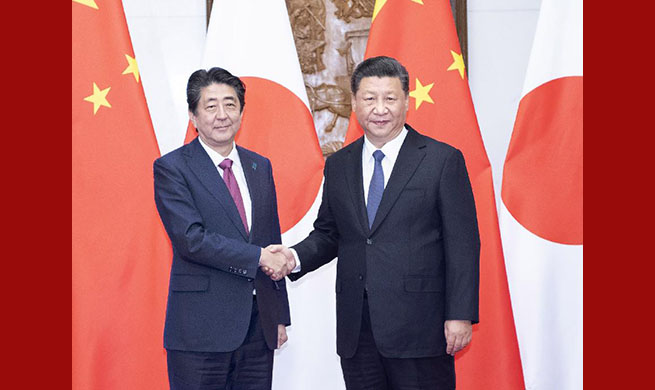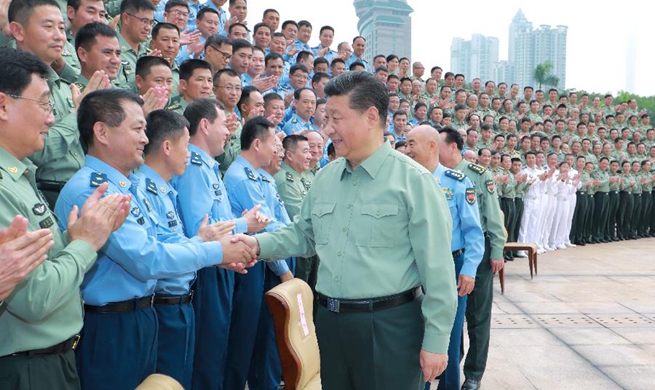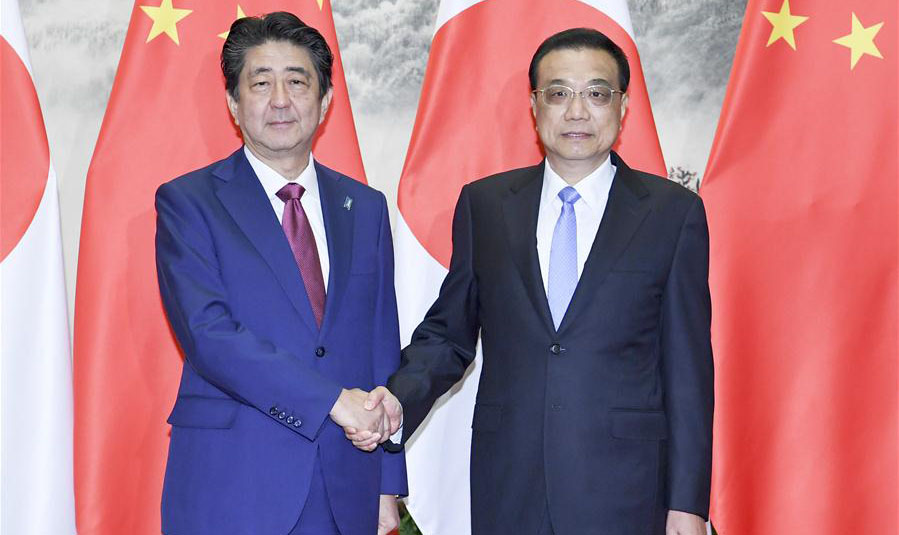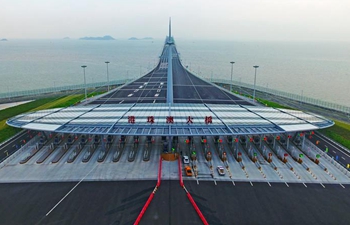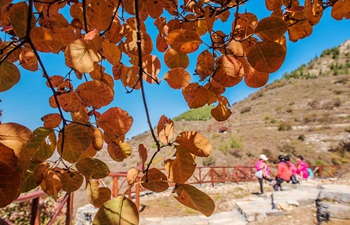DAMASCUS, Oct. 27 (Xinhua) -- The four-way summit that will take place in Turkey on Saturday could be an important step toward discussing long-lasting political solution to end the Syrian war, analysts said.
The four-way summit will gather leaders of Turkey, Russia, France and Germany in Istanbul to focus on the situation in Syria.
The demilitarized zone in northern Syria, which was imposed in accordance with a Russian-Turkish deal, will be under the spotlight in the summit.
UN Special Envoy for Syria, Staffan de Mistura, will also attend the summit. He is expected to discuss the matter of forming a constitutional committee that would be tasked with forming a post-war constitution in Syria.
The summit is also expected to seek joint efforts for finding a political solution to Syria's more than seven-year war.
Some analysts in Syria expressed cautious optimism regarding the summit, particularly because of the participation of Germany and France which are outspoken critics of the administration of Syrian President Bashar al-Assad.
Those countries also share fears that the Idlib agreement could see the return of foreign radicalized rebels to their original countries in Europe.
Sharif Shehadeh, Syrian political expert and ex-parliamentarian, told Xinhua that the summit could be a beginning of roadmap to Syria's crisis, however, it won't be an easy beginning.
The reason is that there will be different views by the participants, he said, counting on the Russian stance to "clarify the image of what is happening in Syria and the terrorism that has hit the country."
Shehadeh said that the chances of the success of the summit are 50-50 percent, adding that it's important for this summit to be held so that the public opinion in Europe could have more understanding about the reality of the events in Syria.
The analyst noted that Russia could offer new ideas regarding the situation in Idlib in particular and the overall solutions for the Syrian war.
"The West must accept such ideas because the Syrian state cannot leave Idlib out of its control and Russia could have a new vision to resolve the situation in Idlib and in Syria in general," said Shehadeh.
Hussam Shuaib, another analyst, told Xinhua that the participation of Germany and France is important to discuss the fate of the foreign radical rebels who could return to their original countries in Europe through Turkey.
"Europe is generally anxious about the possible return of foreign terrorists from Syria to Europe as there are hundreds or even thousands of foreign rebels in Idlib," he said.
Shuaib noted that the Turkish-Russian understanding with the European countries could be built on, not only for the matter of foreign jihadists but also for the return of Syrian refugees from Europe to their country.
Maher Ihsan, journalist and political expert, told Xinhua that Russians will possibly focus on the files of refugees' return and the reconstruction process, while the Western powers will likely discuss the political process.
He noted that the summit could be a step toward bringing closer the European and Syrian views regarding the political solution through Russia.
Ihsan believes that no major breakthrough could be achieved but the summit could be a a step toward drawing close the opinions.
Emad Salem, political expert, expressed skepticism about the summit.
Turkey maybe involving Germany and France to "shuffle the cards" especially after failing to live up to its pledges about pushing the radical rebels to withdraw from the demilitarized zone in Idlib, according to Salem.
However, he agreed that the Russian participation in the summit could be conducive in bringing closer the opinions of the participants in order to put a roadmap to end the Syrian war politically.
It's worth noting that Turkey and Russia agreed on Sept. 17 to establish a demilitarized zone ringing the Idlib region, which is the last major rebel stronghold in northwestern Syria.
The demilitarized buffer zone stretches from the northeastern countryside of Latakia province to the northern countryside of the province of Hama and western countryside of Latakia as well as areas in the countryside of Idlib.
While the agreement has been partially implemented in terms of withdrawing the rebels' heavy weapons from the zone, another key factor is still missing.
The ultra-radical rebels were supposed to withdraw from the zone by Oct. 15, but this didn't happen with the al-Qaida-linked ones refusing to abide by the deal.
The Syrian Observatory for Human Rights said on Friday that the Turkish intelligence has so far failed to persuade the radical rebels to leave the zone.
The Syrian government has previously welcomed the Turkish-Russian deal, but with a few reported breaches by the rebels and their reluctance to leave, Damascus made it clear that its patience has limits.
Syria's permanent representative to the United Nations, Bashar Jaafari, on Friday threatened that his country will retake Idlib.
"Idlib is a dearly held part of my country. We are determined to recover Idlib," Jaafari told the Security Council.
"We allow for diplomatic and political work. But our right under the UN Charter and international law allow us to fully recover Idlib when we deem necessary," he said.
Such remarks came ahead of the summit as a clear message from Damascus that Idlib should eventually return under Damascus' control and that the status quo couldn't last forever.




